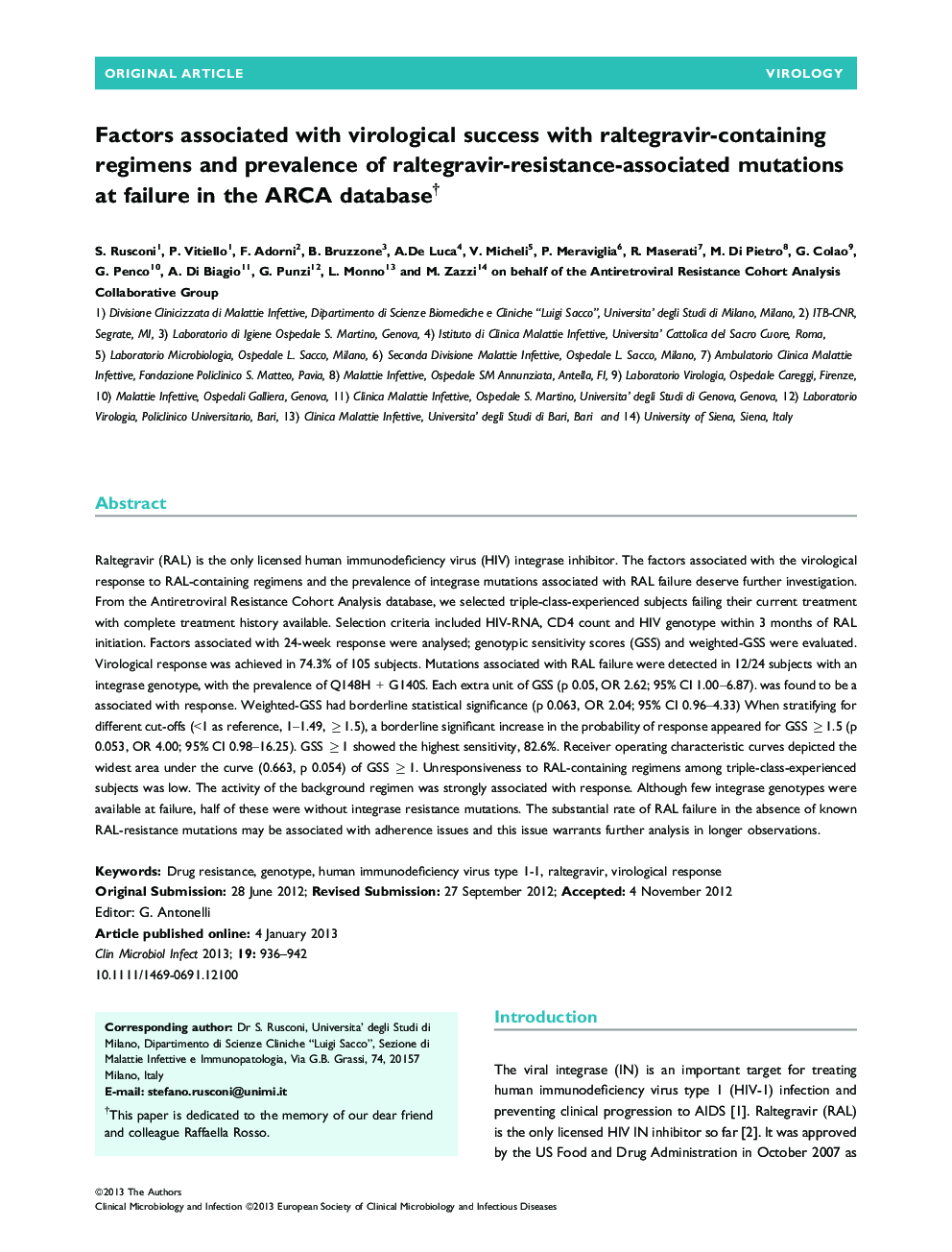| Article ID | Journal | Published Year | Pages | File Type |
|---|---|---|---|---|
| 6130643 | Clinical Microbiology and Infection | 2013 | 7 Pages |
Abstract
Raltegravir (RAL) is the only licensed human immunodeficiency virus (HIV) integrase inhibitor. The factors associated with the virological response to RAL-containing regimens and the prevalence of integrase mutations associated with RAL failure deserve further investigation. From the Antiretroviral Resistance Cohort Analysis database, we selected triple-class-experienced subjects failing their current treatment with complete treatment history available. Selection criteria included HIV-RNA, CD4 count and HIV genotype within 3 months of RAL initiation. Factors associated with 24-week response were analysed; genotypic sensitivity scores (GSS) and weighted-GSS were evaluated. Virological response was achieved in 74.3% of 105 subjects. Mutations associated with RAL failure were detected in 12/24 subjects with an integrase genotype, with the prevalence of Q148H + G140S. Each extra unit of GSS (p 0.05, OR 2.62; 95% CI 1.00-6.87). was found to be a associated with response. Weighted-GSS had borderline statistical significance (p 0.063, OR 2.04; 95% CI 0.96-4.33) When stratifying for different cut-offs (< 1 as reference, 1-1.49, ⥠1.5), a borderline significant increase in the probability of response appeared for GSS ⥠1.5 (p 0.053, OR 4.00; 95% CI 0.98-16.25). GSS ⥠1 showed the highest sensitivity, 82.6%. Receiver operating characteristic curves depicted the widest area under the curve (0.663, p 0.054) of GSS ⥠1. Unresponsiveness to RAL-containing regimens among triple-class-experienced subjects was low. The activity of the background regimen was strongly associated with response. Although few integrase genotypes were available at failure, half of these were without integrase resistance mutations. The substantial rate of RAL failure in the absence of known RAL-resistance mutations may be associated with adherence issues and this issue warrants further analysis in longer observations.
Related Topics
Life Sciences
Immunology and Microbiology
Microbiology
Authors
S. Rusconi, P. Vitiello, F. Adorni, B. Bruzzone, A. De Luca, V. Micheli, P. Meraviglia, R. Maserati, M. Di Pietro, G. Colao, G. Penco, A. Di Biagio, G. Punzi, L. Monno, M. Zazzi,
